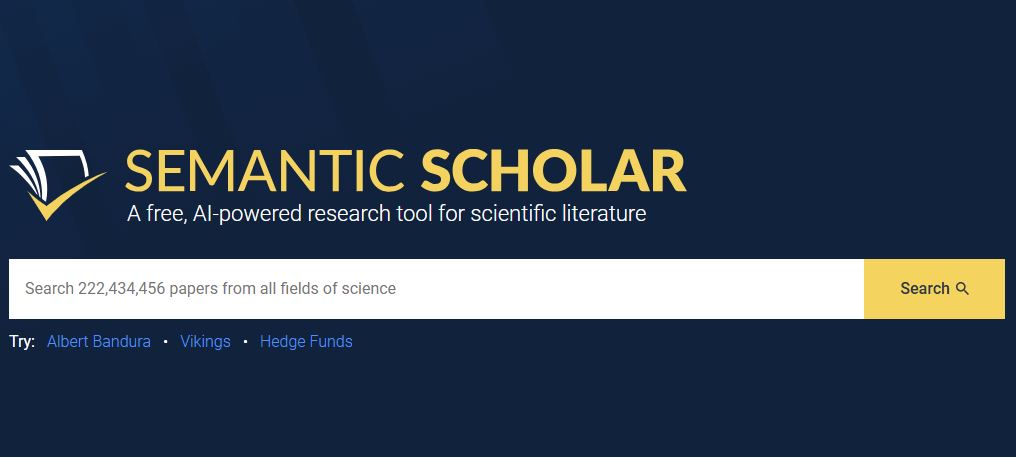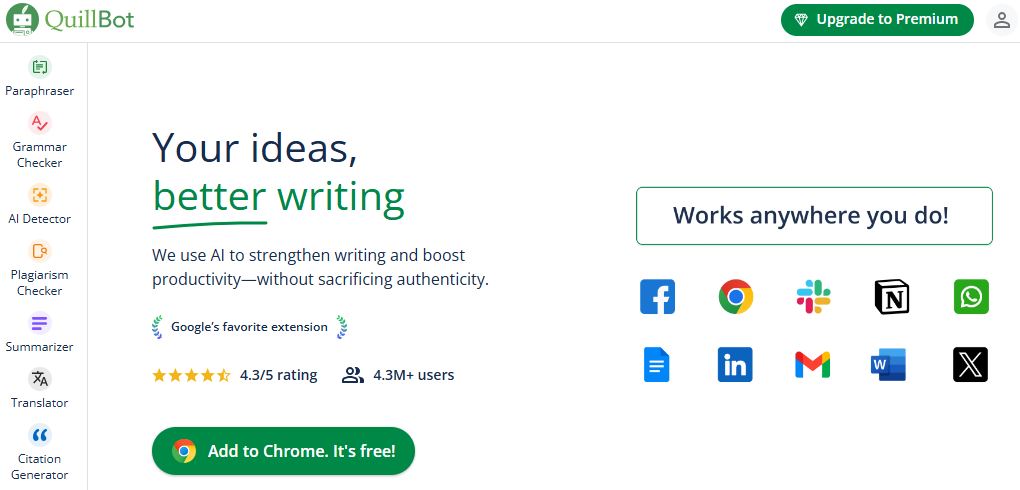Artificial Intelligence has revolutionized the way we conduct research. From literature reviews to data analysis, AI tools are helping researchers save time, improve accuracy, and find valuable insights more efficiently. Whether you’re a student, researcher, or professional, leveraging AI for research tasks can boost productivity and provide deep insights that might otherwise go unnoticed. In this post, we’ll explore 10 of the best AI ask tools for Research.

Table of Contents
ToggleWhat Are AI Tools for Research?
AI tools for research are software applications that use artificial intelligence to assist in various stages of the research process. These tools help researchers automate tasks like literature review, data analysis, citation management, and even academic writing. AI can analyze large datasets quickly, summarize information, identify relevant research papers, generate insights, and enhance collaboration among researchers. By leveraging machine learning and natural language processing, these tools make the research process more efficient, accurate, and streamlined.
Key Features to Look for in AI Research Tools
When selecting AI tools for research, consider the following key features to ensure they align with your needs:
1. Data Processing and Analysis: Look for tools that can quickly process large datasets, perform statistical analysis, and extract meaningful insights.
2. Literature Discovery: The ability to search, summarize, and recommend relevant research papers, articles, and journals based on your topic of interest is essential.
3. Citation and Reference Management: Tools that help organize and manage citations, references, and bibliographies can save time and improve accuracy.
4. Natural Language Processing (NLP): AI tools using NLP can assist in generating summaries, paraphrasing, and improving the quality of written content.
5. Collaboration Features: Features like shared workspaces, real-time collaboration, and version control make teamwork smoother for academic projects.
6. Integration with Other Platforms: The ability to integrate with databases, citation managers, and writing platforms enhances workflow efficiency.
Best AI Ask Tools for Research
1. Semantic Scholar

Best for: Literature search and discovery
Semantic Scholar is an AI-powered search engine designed for academic research. It provides personalized research paper recommendations and allows researchers to explore relevant studies quickly.
Key Features:
AI-driven paper search and filtering
Citation graph to explore paper connections
Research paper recommendations based on your interests
Pros:
Comprehensive and accurate search
Free to use
Provides recommendations based on user behavior
Cons:
Limited customization for advanced searches
Some papers may not be available in full text
Interface can be overwhelming for new users
2. Zotero
Best for: Reference management
Zotero is a powerful tool for managing references and citations. It allows users to automatically collect, organize, cite, and share research materials with ease.
Key Features:
Automatic citation generation
Web scraping for easy data collection
Integration with Microsoft Word and Google Docs
Pros:
Open-source and free to use
User-friendly interface
Supports a wide range of citation styles
Cons:
Limited cloud storage for free users
Some syncing issues with large libraries
Requires manual organization for large datasets
3. Ref-N-Write
Best for: Writing assistance
Ref-N-Write is an AI-powered writing assistant that helps researchers with academic writing, paraphrasing, and managing citations. It’s particularly useful for non-native English speakers.
Key Features:
Paraphrasing and text enhancement tools
Academic writing support with contextual suggestions
Citation management for easy referencing
Pros:
Helps with academic writing style and structure
Free plan with basic features
Easy-to-use interface
Cons:
Limited free features
Lacks support for non-English academic writing
Not as customizable as other writing tools
Also Read: 10 Best AI Novel Writing Softwares
4. IBM Watson Discovery
Best for: Data extraction and analysis
IBM Watson Discovery is an advanced AI tool for analyzing unstructured data. It helps researchers extract insights from large volumes of data, identify trends, and categorize documents.
Key Features:
NLP-based data analysis
Document categorization
Text extraction from various data formats
Pros:
Powerful data analysis capabilities
Helps automate data collection and categorization
Customizable for different industries
Cons:
Complex setup process
Expensive for individual researchers
Requires some technical knowledge to use effectively
5. QuillBot

Best for: Paraphrasing and summarization
QuillBot is an AI tool that assists with paraphrasing, summarizing text, and improving readability. It’s ideal for researchers who need to reword and condense information quickly.
Key Features:
Paraphrasing and summarizing tools
Writing style customization options
Integration with Google Docs
Pros:
Easy-to-use interface
Multiple writing modes (formal, creative, etc.)
Free version available
Cons:
Free plan has limitations on word count
Lacks citation management features
May not always produce perfect results
6. EndNote
Best for: Reference management
EndNote is a reference management software that helps researchers organize citations and references, manage PDFs, and generate bibliographies efficiently.
Key Features:
Citation management and bibliography generation
PDF management and annotation tools
Integration with Microsoft Word
Pros:
Comprehensive and widely used in academia
Helps manage large libraries of research papers
Excellent integration with word processors
Cons:
Expensive for personal use
Can be overwhelming for beginners
Limited cloud storage in the free version
7. Mendeley
Best for: Literature management and collaboration
Mendeley is a research management tool designed for organizing, sharing, and collaborating on academic papers. It is particularly useful for researchers working on group projects.
Key Features:
Citation management
Collaborative research tools
PDF annotation and sharing
Pros:
Free to use with basic features
Supports collaboration with teams
Cross-platform access
Cons:
Limited storage on the free plan
Some syncing issues with large libraries
Interface can be unintuitive for new users
8. Scite
Best for: Research analysis
Scite is a research tool that evaluates the relevance and quality of academic papers. It helps researchers understand the context of citations and how studies are related.
Key Features:
Citation graph and network analysis
Smart citations to track paper connections
Real-time research paper recommendations
Pros:
Improves research paper evaluation
Free version with key features
Smart citation tracking system
Cons:
Limited access to full paper content
Interface is not as polished as other platforms
Free version has limitations on features
Also Read: 10 Best AI Websites to Help Find a Job
9. Paperpile
Best for: Citation and paper management
Paperpile is an efficient tool for managing citations, references, and academic papers. It integrates well with Google Docs and is ideal for researchers who collaborate online.
Key Features:
Cloud-based citation management
Integration with Google Docs and Drive
PDF management and annotation
Pros:
Simple and user-friendly
Integrates well with Google services
Affordable pricing plans
Cons:
Only available on web browsers
Limited offline access
No free version available
10. TALIS

Best for: Academic collaboration
TALIS is an AI-powered platform that assists with academic writing and collaboration. It suggests content and helps researchers optimize their academic papers.
Key Features:
AI-assisted content suggestions
Collaboration and editing tools
Research paper structuring assistance
Pros:
AI-powered academic assistance
Helps with content optimization
Good for collaborative projects
Cons:
No free plan available
Interface can be hard to navigate
May require some technical know-how
Top AI Ask Tools for Research at a Glance
| Tool | Best For | Key Features | Free Plan | Ease of Use | Customization |
|---|---|---|---|---|---|
| Semantic Scholar | Literature search & discovery | AI-powered research paper search and recommendations | Yes | Easy | Low |
| Zotero | Reference management | Citation management, web scraping | Yes | Moderate | High |
| Ref-N-Write | Writing assistance | Academic writing assistant, citation management | Yes | Easy | Moderate |
| IBM Watson Discovery | Data extraction & analysis | NLP-powered text analysis, document categorization | No | Moderate | High |
| QuillBot | Paraphrasing & summarization | AI-powered paraphrasing, text summarization | Yes | Easy | Low |
| EndNote | Reference management | Citation and reference management, research library | No | Moderate | High |
| Mendeley | Literature management & collaboration | Reference manager, research collaboration tools | Yes | Easy | Moderate |
| Scite | Research analysis | Citation graph, research paper evaluation | Yes | Easy | Low |
| Paperpile | Citation & paper management | Citation management, integration with Google Docs | Yes | Easy | Moderate |
| TALIS | Academic collaboration | AI-assisted content suggestions for academic papers | No | Moderate | High |
Final Thoughts on Best AI Ask Tools for Research
AI tools have become indispensable for modern research, helping researchers streamline tasks such as literature reviews, data analysis, and citation management. Whether you’re looking for a comprehensive reference manager or an AI-powered writing assistant, the tools listed above provide a range of features to help you achieve your research goals efficiently. Selecting the right tool depends on your specific needs, such as collaboration features, citation management, or data analysis capabilities. By incorporating AI into your research workflow, you can enhance productivity, improve accuracy, and ultimately achieve better results in less time.
Interesting Reads
How to Disable WP-Cron in WordPress




